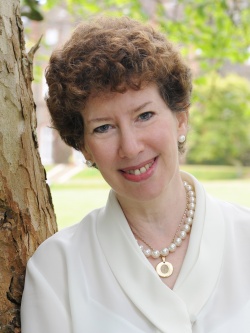Patients Rights
The right to a second opinion
Patients are no longer content to be passive recipients of medical care, and are instead taking a more active role in their treatment, says Kathy Oliver, Chair co-director of the International Brain Tumour Alliance (IBTA).
Report: Frank Swain

Kathy Oliver, was speaking at a ‘Pathology, Patients and the Public’ workshop at the European Congress of Pathology in London. Oliver, whose son Colin was diagnosed with a brain tumour in 2004, drew attention to rare cancers – affecting fewer than six in 100,000 people, they nonetheless make up 22% of cancers diagnosed in Europe, affecting over four million people. She called for these patients to receive greater access to their medical records, especially pathology test results, and promoting the right of patients to seek a second opinion.
The IBTA was formed in 2005 to raise awareness of the needs of brain tumour patients and their families, and to build greater links between patients, healthcare providers, research institutes and pharmaceutical companies working in the field. ‘Pathologists are the link between lab-based research and clinical practice,’ said Oliver. ‘Yet, we as patients and caregivers, rarely see them, know their names or indeed have a chance to thank them.’
The IBTA manages events such as the Walk Around the World for Brain Tumours, which has been supported by 200 brain cancer charities and other relevant organisations over the past eight years, and the International Brain Tumour Awareness Week, held in October.
Oliver added that accurate diagnosis is essential for improving patient care, but better knowledge about rare cancers like brain tumours was held back by a lack of tumour material. Telling the audience that ‘tissue is the issue’, Oliver identified the lack of tissue donations as a crucial bottleneck preventing improved research into rare cancers. She encouraged pathologists to meet with patients before surgery to explain the value of these donations and to seek informed consent so that the tissue could be used in urgently needed research. Examples of tissue banking initiatives that actively involve patients include the PATH Biobank in Germany, which collects tissue from breast cancer patients, and the US-based Life Raft Group, which gathers samples of rare gastrointestinal stromal tumours (GIST).
Because of the limited tissue available for rare cancers research, the IBTA encourages greater data sharing between hospitals, and increased collaboration amongst researchers through the management of tissue banks and European Reference Networks. ‘Arriving at an accurate diagnosis is essential for optimal treatment of rare cancer patients,’ she said. ‘It’s crucial that rare cancer patients are dealt with by specialised, expert pathologists, who are very familiar with their specific type of disease.’ To meet this goal, the IBTA is promoting the development of Centres of Expertise at national level, with pathologists who are knowledgeable about rare cancers and experienced in treating them.
Oliver is also on the advisory board of the European Patients’ Academy on Therapeutic Innovation (EUPATI), which empowers patients’ roles in guiding medical research, e.g. clinical trials. Finally, she called for tools to help patients actively participate in their care, e.g. a ‘patients dictionary of pathological terms’.
Profile:
Kathy Oliver is Chair and Founding Co-Director of the International Brain Tumour Alliance (IBTA). Involved in a range of high-level projects and committees addressing brain tumour and rare cancer issues in Europe, she is also a frequent plenary and session speaker at international neuro-oncology and cancer conferences. Oliver was recently appointed to the European Commission’s new Expert Group on Cancer Control where she will be the alternate representative from the European Organisation for Rare Diseases (EURORDIS) Policy Action Group on Rare Cancers. She was presented with The EANO (European Association for NeuroOncology) Award 2011, as well as the Advocacy Award conferred by the 5th International Conference on Future Trends in the Treatment of Brain Tumours.
25.11.2014




